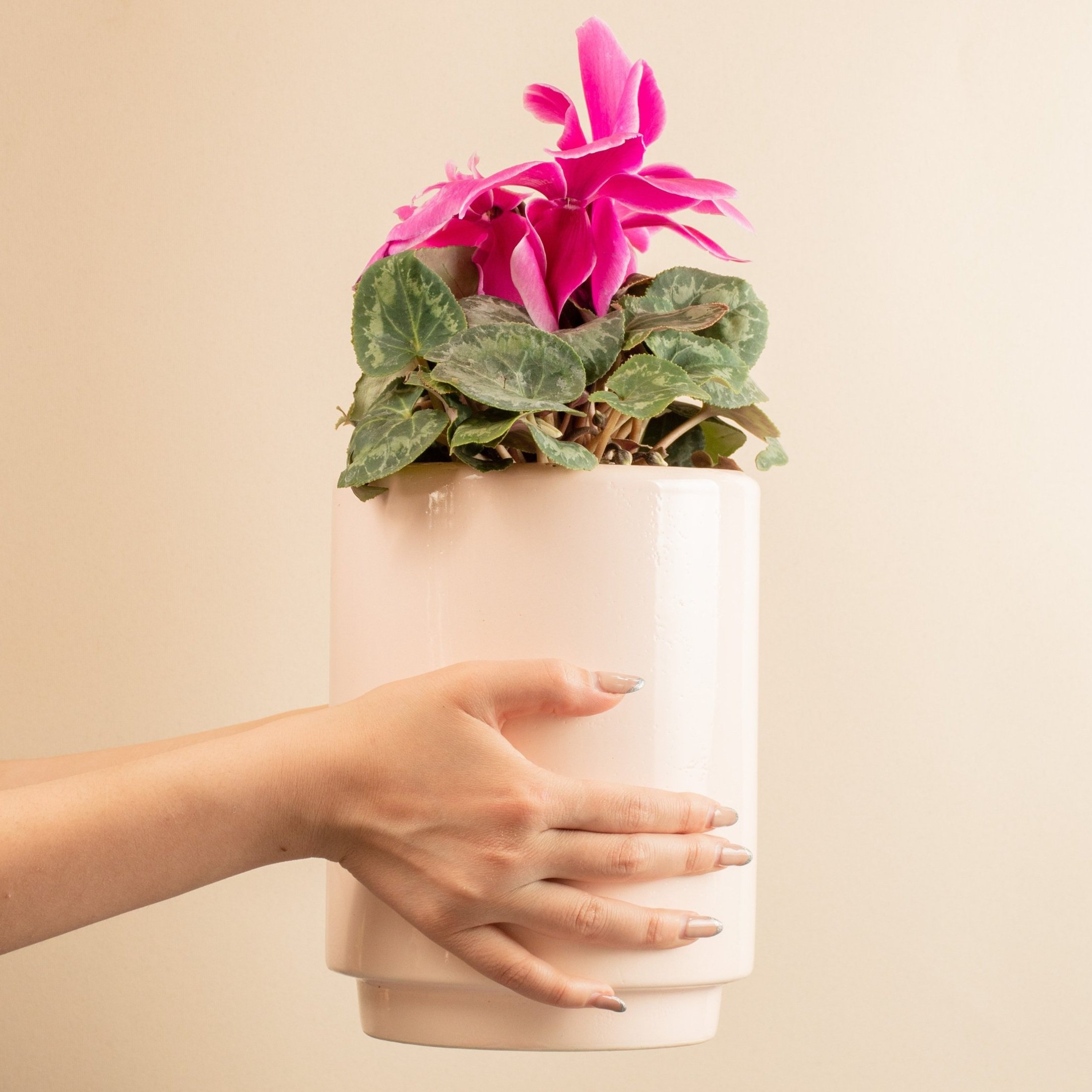ENNEAGRAM THERAPY
Therapy Backed By A Powerful System That Celebrates Your Strengths
The Enneagram is a roadmap like no other
to becoming the best version of yourself.
What is Enneagram therapy?
Enneagram therapy combines traditional psychological techniques with the wisdom of the Enneagram system. This system originated in the Middle East and has been used for centuries as a tool to help people understand their personality traits and grow. It emphasizes the strengths and challenges of your internal world and helps you interface with people who are different than you in effective, compassionate ways.
Our Therapists Who Specialize In Enneagram Therapy
Laurel van der Toorn, LMFT
California, Colorado, Florida, Michigan & Washington
Alexis Harney, LMFT
California & Florida
Enneagram Types And How They Show Up In Enneagram Therapy
-

Type 1 - The Reformer
Orderly, reliable, able to see the ideal version of everything around them and steps toward making it happen. In therapy, Ones might work on feelings of anger, self-criticism, black-and-white thinking, and deep worry that they are bad or corrupt.
-

Type 2 - The Helper
People-oriented nurturers who love to be helpful and needed. In therapy, Twos might work on not diminishing their own needs and desires, fears they are not lovable, not creating relationships based on dependence, and preventing feelings of resentment that happen when they have been caretaking for too long without receiving.
-

Type 3 - The Achiever
Highly driven by success and achievement in their goals, they can be charming and adaptable. In therapy, Threes might work on separating their achievements from their self-worth, developing a more authentic relationship to their own emotions and to others, allowing themselves to rest, and building intimacy.
-

Type 4 - The Individualist
Self-aware, sensitive, and creative individuals who have a deeply individualistic approach to life and value being unique. In therapy, Fours might work on depression, feeling like an outcast, regulating emotions, unlearning beliefs that they are “too much”, and navigating a world that may operate with less sensitivity and attention to individualism than they do, without compromising their values and identity.
-

Type 5 - The Investigator
Inquisitive minds that are always questioning things and searching for answers. In therapy, Fives might work on integrating with others more, opening up to others in a way that feels safe, connecting to their emotional selves, engaging with the world beyond their area of expertise, and confronting their fear of scarcity.
-

Type 6 - The Loyalist
Highly loyal people who value community and commitment in relationships with family or friends above everything else. In therapy, Sixes might work on deep and pervasive anxiety, concerns about society and the planet at large, issues with relationships, family, and work, and conflicting feelings about people in positions of authority.
-

Type 7 - The Enthusiast
Adventurous people with an overflowing enthusiasm for life’s joys and experiences big and small. In therapy, Sevens might work on identifying and tolerating uncomfortable emotions, combating feeling trapped by commitments and routine (hello, FOMO), and engaging in healthy coping rather than escapism and avoidance.
-

Type 8 - The Challenger
Bold personalities who like to protect others, take risks and confront challenges and injustice head-on. In therapy, Eights might work on their fears of being controlled or manipulated, softening their approach to others that may not tolerate conflict or challenge as well as they do, bringing out their natural caregiving and protecting qualities, and tolerating the discomfort of being vulnerable in safe situations.
-

Type 9 - The Peacemaker
Harmonious individuals who focus on promoting peace and harmony at all times. In therapy, Nines might focus on depression, identifying and honoring their own needs over others’, developing a solid sense of self, setting and maintaining boundaries while staying connected, and being more assertive and confident.
-
Non-Pathologizing Therapy
The enneagram can be powerful in therapeutic settings as it allows both client and therapist to understand something deeper than what lies on the surface. The enneagram delves into your core values, beliefs, and fears, which helps therapists develop a more effective treatment plan tailored specifically around you as an individual rather than trying a one-size-fits-all approach based on a DSM diagnosis. The enneagram is also trauma-informed, as our core fears and desires are shaped by our formative and traumatic experiences. Your therapist can address your enneagram growth points alongside your trauma for maximum impact and healing.
A Message From Our Director On The Power of the Enneagram
I was introduced to the Enneagram in high school, as part of a community event series hosted by an Enneagram master. I went to as many talks as I could, riveted by the interconnection and harmony of the system. I drew on the Enneagram heavily as I went through my own teen and young adult identity development and learned how to navigate peer, romantic, and workplace relationships.
The Enneagram is never meant to be used to reduce someone to cluster of symptoms or desires or fears. Yet it remains a highly useful general map for understanding people who are very different from ourselves. It has brought me great satisfaction in my personal and professional life. It brings me great joy to offer therapy that is informed by this system.
May it bring you as much insight, self-compassion, and relationship satisfaction as it has me.
- Laurel
We offer Enneagram Therapy for people in California, Colorado, Florida, Michigan, & Washington
Understanding Your Greatest Desires and Deepest Fears Through Enneagram Therapy Will Change Your Life
Identify Your Type
At the beginning of Enneagram therapy, it’s important for us to first understand your type according to the Enneagram system. If you already know or have a strong inkling about your type, great! If not, it's something we can explore together. While we all have a little bit of every type in us, think of your primary type as your core operating system, such as Windows, Mac, or Linux. You can also think of it as your primary residence, even if you leave your house during the day.
Each person is assigned one of nine distinct personality archetypes based on the system. The core types are Reformer, Helper, Achiever, Individualist, Investigator, Loyalist, Enthusiast, Challenger, and Peacemaker. Learning about each type will help you gain insight into your own character traits and areas for growth. It's best not to take a test, but rather to read about each type and note which types resonate, which types make you feel uncomfortable, and which seem most mysterious to you. Pay close attention to each type's core motivation and core fear. We go over the nine Enneagram types in this post.
Explore Your Traits and Identify Unhelpful Patterns Through Enneagram Therapy
Once we know your primary type, we can begin exploring your motivations and unconscious behavior patterns in more depth. These sessions involve discussing your thoughts, feelings, behavior patterns, reactions to others, to stressors and triggers from past experiences, as well as hopes and dreams for the future. The goal is to heal trauma, build compassion for yourself and others, and live up to your fullest potential, no matter what type you are.
There are no bad types, only unhealthy expressions of each type that present with unique problems. Enneagram therapy sessions allow us to identify any unhelpful or negative patterns that you may have developed over time as well as how they impact your daily life. This may include difficulties with relationships or navigating difficult situations at work. Understanding these behaviors - and most importantly, their motivations - can help you develop new coping strategies that replace old patterns with healthier alternatives when faced with challenging situations.
Make meaning.
Deepen Relationships
Develop New Strategies and Habits Through Enneagram Therapy
During an Enneagram therapy session, you'll likely discuss how events or particular relationships have impacted you throughout your life and form strategies for overcoming negative thoughts about yourself around specific topics such as self-worth or self-image issues.. You'll also explore healthier solutions for managing stressors and communicating with others who have a different internal world that you.
In addition to identifying unhealthy behaviors associated with one's primary personality type, one of Enneagram therapy's greatest objectives is addressing habitual thought and behavioral processes which lead people down emotional dead ends rather than paths towards growth.
Knowing your therapist is using a time-tested system may help you feel trust in the process and theoretical foundation of our work. We’re excited to guide you through personal exploration.
Have you ever wondered why your partner or friend is behaving a certain way when it's clearly not effective or in their best interest?
As you move through the world, you are constantly interacting with people who have a different core type than you. You may find yourself confused, bewildered, frustrated, or angry at others and wonder why people behave in certain ways. Understanding the essential motivations and fears of others through the Enneagram system can deepen your romantic relationships, family relationships, friendships, and even work relationships in profound ways, leading to less conflict and more feelings of connection, compassion, and love.
FAQs: Enneagram Therapy
-
No one likes to feel pathologized or labeled, especially in therapy. You’re more than a cluster of symptoms. We have found that by using the Enneagram, we can take a holistic view of who you are and what makes you tick. We can also look at how your early experiences shaped your motivations. Then, by finding ways to get your unmet needs fulfilled, we can help you unlearn patterns that no longer serve you.
-
Yes, working with an enneagram therapist focuses on the motivations for these patterns rather than simply extinguishing them. When we understand Why something is happening, it’s much easier to address and change.
-
There are many techniques that go well with the Enneagram. Your Enneagram therapist will create a customized approach for you. Some connect techniques and approaches we use are narrative therapy, holistic and psychodynamic therapy, Gottman Method Couples therapy, EMDR therapy, and Cognitive Behavioral Therapy.
-
Yes! We have found that couples therapy using the Enneagram framework works fabulously. By combining Gottman Method Couples Therapy with the enneagram, we can make perpetual arguments and frustrating patterns less personal and give you tools to end negative patterns . When things are less personal, we have a greater chance of making permanent change.
-
The Enneagram is fundamentally about identifying your core motivations and fears. Often, it is these very motivations and fears that cause anxiety, depression, and relationship conflicts. By focusing on your motivations and using the Enneagram framework for growth, we can help overcome these challenges.
-
All types can experience mental health issues. Remember that your type has many possible expressions and many possible levels of health. But some types, particularly withdrawn types like 4, 5, and 9, can be more prone to depression when they are out of balance. More conflicted types, such as 1, 2, and 6, might be more prone to anxiety when out of balance.
-
That’s the core goal of Enneagram therapy. Our limiting beliefs and our fears are what drive each type to manifest its unhealthiest traits. But identifying your type and the resulting negative core belief, you can liberate yourself from it.
-
The enneagram system is complex, dynamic, and interconnected. There are endless possibilities for growth and expression. It provides a solid roadmap toward the healthiest version of yourself. For example, a self-involved and competitive Type 3 can engage in healthy Type 6 behaviors to grow: connecting with community, creating a sense of shared security, and promoting the good of the group can balance out the self-serving 3 behaviors.
Heal Your Relationship Through Enneagram Couples Therapy
Do you want to decrease conflict, improve communication, and feel closer than ever to your partner? The Enneagram is a fantastic tool for this. We love the framework the Enneagram offers so much because it helps us deepen our understanding and take problems less personally.
Our specially trained Gottman therapists can use the Enneagram along with other couples therapy techniques to help you break down complex patterns and problems. We can de-personalize and teach you new tools to handle disagreements and tension. Reconnect, recommit, and re-awaken the spark you felt when you met through couples counseling using the Enneagram.
We work with all couples, but have a special place in our hearts for LGBT couples.
Case Example: Elsa and Tyler's Growth with Enneagram Therapy For Couples
Elsa and Tyler have been married for seven years and have faced increasing tension and conflict in their relationship over the past two years. Elsa, an artist, often feels misunderstood and unappreciated. Tyler, a teacher with a strong sense of duty and perfectionism, feels overwhelmed by Elsa's emotional intensity and perceived unpredictability.
-
Elsa (Enneagram 4) frequently expresses feelings of inadequacy and longing for deeper emotional connection. She often perceives Tyler as critical and emotionally distant.
Tyler (Enneagram 1) struggles with Elsa's emotional unpredictability and feels that her expressions are a sign of instability, which he feels compelled to fix.
Their core conflicts often revolve around Elsa feeling criticized and unloved, while Tyler feels attacked and unappreciated for his efforts to maintain order and stability.
-
During their Enneagram couples therapy sessions, Elsa and Tyler begin to understand their core Enneagram types and how these influence their behaviors and interactions.
Elsa (Enneagram 4): Known as the Individualist, Elsa's core desire is to find herself and her significance. She craves authenticity and deep emotional connections but often struggles with feelings of envy and inadequacy. Elsa learns that her intense emotions and desire for uniqueness stem from a core belief that she is flawed and must seek validation through deep, often dramatic, expressions of her inner world.
Tyler (Enneagram 1): Known as the Reformer, Tyler's core desire is to live a life of integrity and purpose. He strives for perfection and feels a strong sense of responsibility to improve himself and his environment. Tyler discovers that his critical nature and insistence on doing things the "right" way are driven by a core belief that he must be perfect to be worthy of love and acceptance.
-
With the help of their Enneagram therapist, Elsa and Tyler start to view their conflicts through the lens of the Enneagram. They begin to see each other's behaviors not as personal attacks but as expressions of their core fears and desires. This deeper understanding of each other brings more empathy and compassion to their conflict.
Understanding Core Motivations:
Elsa's Perspective: Elsa learns that Tyler's criticism is not a sign of his lack of love, but rather his way of striving for improvement and excellence. She realizes that his need for order stems from a desire to feel secure and in control, not from a wish to undermine her feelings.
Tyler's Perspective: Tyler understands that Elsa's emotional intensity and need for deep connection are not attempts to create chaos, but rather her way of seeking authenticity and reassurance. He learns to appreciate her depth and creativity as expressions of her true self, not as instability.
Developing Compassion:
For Elsa: She starts to appreciate Tyler's dedication and commitment to their relationship. She learns to communicate her needs more clearly without dramatizing them, helping Tyler understand her longing for emotional connection without feeling overwhelmed.
For Tyler: He begins to practice patience and empathy, recognizing Elsa's need for validation and acceptance. He works on expressing his love and appreciation in ways that resonate with her emotional needs.
Improving Communication:
They both practice active listening and validate each other's feelings. Elsa uses "I" statements to express her emotions without blaming Tyler, and Tyler learns to make space for her feelings without “fixing” things, and to offer feedback without criticism.
Creating Balance:
They establish routines that honor both Elsa's need for spontaneity and Tyler's need for structure. This balance allows them to enjoy shared activities without feeling constrained or overwhelmed.
-
Over time, Elsa and Tyler begin to see significant improvements in their relationship. By understanding and respecting each other's Enneagram types through Enneagram therapy, they have better “love maps” that reduce the frequency and intensity of their conflicts. They develop a deeper appreciation for each other's strengths and learn to support each other in areas of vulnerability.
Elsa feels more understood and valued, leading to fewer emotional outbursts and a greater sense of security. Tyler feels less burdened by the need to fix things and more able to enjoy the emotional richness Elsa brings to their relationship. Together, they cultivate a more fulfilling marriage, viewing their differences as complementary rather than conflicting.
Want An Enneagram Speaker At Your Next Event?
Our clinical director enjoys speaking and consulting around the Enneagram for company events, dinner parties, and nonprofits looking to enhance their EQ through this powerful system.
Other Holistic Therapy Services in California
At Laurel Therapy Collective, we offer personalized teletherapy designed to empower you on your mental health journey. Our therapists are skilled in addressing a wide array of concerns, including anxiety, EMDR therapy, gay and lesbian therapy, couples' therapy online, therapy for lawyers, holistic therapy, trauma therapy, therapy for young adults, therapy for burnout, and therapy for teenagers. We serve all of California and Florida, and concentrate on serving driven professionals in Santa Cruz, San Francisco, and Los Angeles. As a team that celebrates diversity, embraces anti-racism, promotes body positivity, and supports a healthy attitude towards sexuality, we are committed to providing a safe and nurturing space for your healing. You deserve to find peace, resilience, and joy.
















